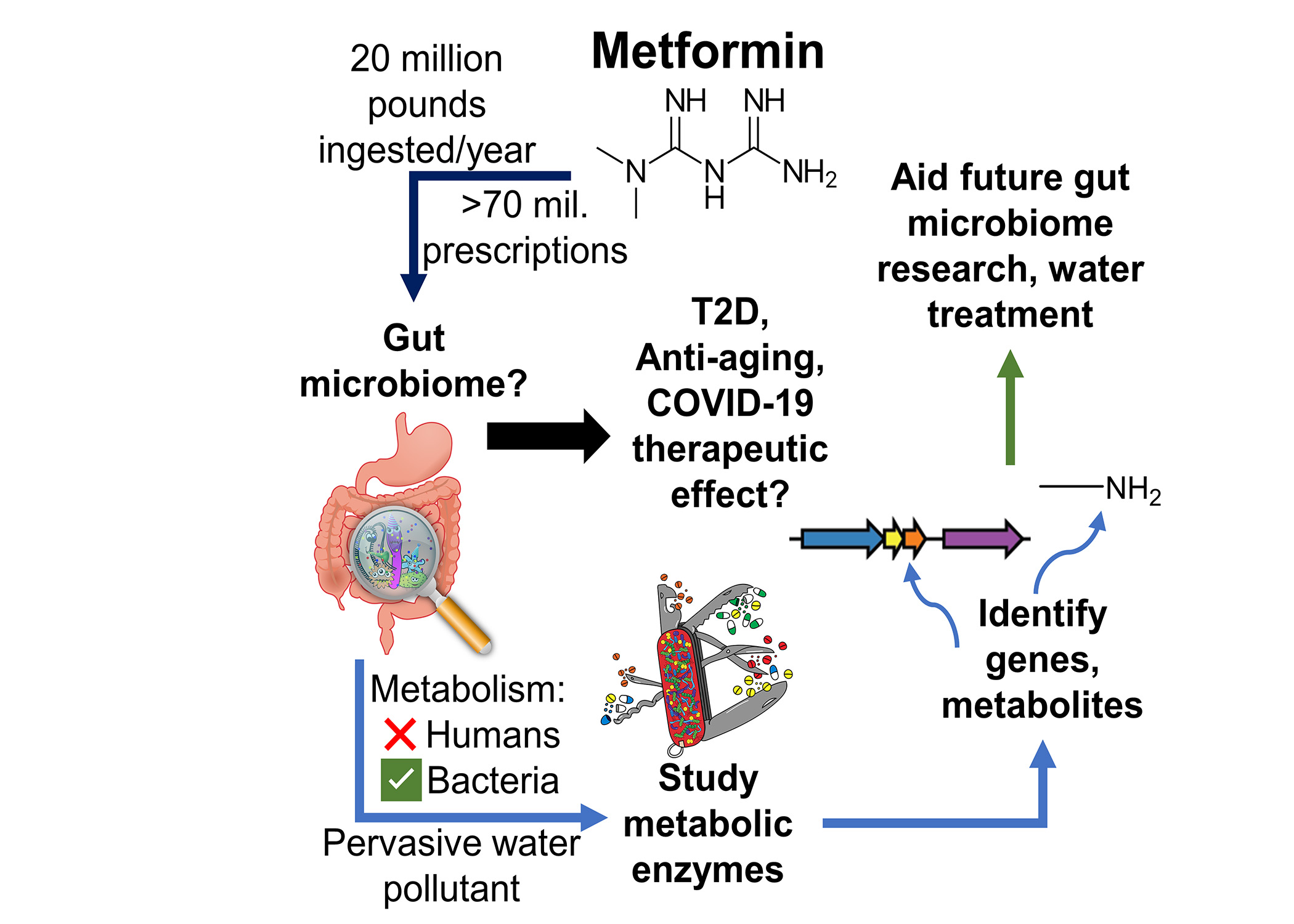The first-line, type 2 diabetes drug, metformin, is both a wonder drug and an emerging pollutant. Metformin improves health, obesity, diabetes, and COVID-19 outcomes but the mode of action is currently unknown, although it is linked to microbial reactions to the drug. Because of the complexity of the interactions, a multi-disciplinary approach is essential.
PhD student Lambros Tassoulas (Biochemistry, Molecular Biology, and Biophysics), in a project called “Drugs in Humans and Water: Studies on Metformin at the Intersection of Informatics, the Environment, and the Wastewater Industry,” studies how bacteria break down metformin and will use that information to aid medical studies on COVID-19 and diabetes and to better deal with healthy ecosystems. The global use of metformin continues to increase and is accumulating in the environment along with a metabolite, guanylurea, where much research has looked at the toxicological effects of these substances in the environment. This research seeks to find the genes and enzymes related to metformin metabolism which are existent in microbes from wastewater treatment plants. Once characterized, the human gut microbiome of metformin patients are hypothesized to possess some of these microbes and this will be tested by evaluating human gut metagenomes. The potential impact of this research would be better understanding the mechanism of metformin therapy with the human gut microbiome and improve wastewater treatment to efficiently remove metformin. In addition, this research could inspire the development of a probiotic that contains metformin-degrading microbes which could be taken by metformin patients. This probiotic could enhance the therapeutic effect of metformin and also ameliorate the side effects of the drug for some 30% of type 2 diabetes patients that have adverse gastrointestinal reactions to metformin. The project is a collaboration from experts in environmental biochemistry, medicine, bioinformatics, and enzymology.
Some funding for this project was provided by a 2022 University of Minnesota Informatics Institute MnDRIVE PhD Graduate Assistantship. The UMII MnDRIVE Graduate Assistantship program supports U of M PhD candidates pursuing research at the intersection of informatics and any of the five MnDRIVE areas:
- Robotics, Sensors and Advanced Manufacturing
- Global Food Ventures
- Advancing Industry, Conserving Our Environment
- Discoveries and Treatments for Brain Conditions
- Cancer Clinical Trials
This project is part of the Advancing Industry, Conserving Our Environment MnDRIVE area.
Research Computing partners:
- University of Minnesota Informatics Institute
Complete list of 2022 UMII MnDRIVE PhD Graduate Assistantships.
Image description: Graphical abstract of project.
